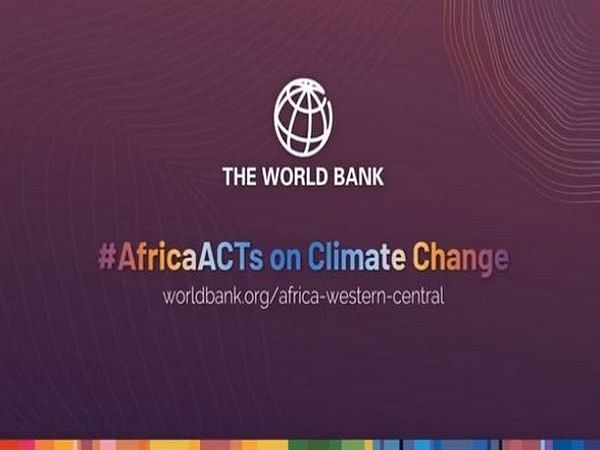Brazzaville (Congo) [Africa], October 10 (ANI): A report underscores the potential for the Republic of Congo to combat poverty, enhance shared prosperity, and safeguard against climate impacts through a bold approach that prioritizes economic diversification and climate resilience.
According to a press release by The World Bank, the Country Climate and Development Report (CCDR) emphasizes that the Republic of Congo could realize a substantial reduction in poverty rates, with rural areas potentially experiencing a 40 per cent decline and urban areas a 20 per cent reduction by 2050.
However, the report sounds a stark warning that maintaining the status quo is not a viable option. If the country fails to undertake reforms aimed at diversifying its economy and attracting climate investments, it could suffer economic losses amounting to a staggering 17 per cent of GDP by 2050.
Additionally, the adverse effects of climate change could escalate total health costs from USD 92 million in 2010 to a daunting USD 260 million by 2050.
Cheick Kante, World Bank Country Director for the Republic of Congo, expressed the urgency of addressing this crossroads.
Kante said, “The Republic of Congo is at a crossroads. Climate change threatens the country’s development gains and poses significant risks to its natural, physical and human capital, therefore to its development objectives”.
“This report aims at promoting a debate on climate and development issues and identifies priority areas for action that can generate a greener and better future for all Congolese people”, added Kante.
He noted that climate change threatens the nation’s development achievements and poses substantial risks to its natural, physical, and human capital, thereby endangering its development objectives.
Kante underscored the report’s aim to stimulate discussions on climate and development issues and pinpoint priority areas for action to create a greener and more prosperous future for all Congolese citizens.
The report identifies four key priorities to promote sustainable growth.
Stronger and Greener Infrastructure- Upgrading infrastructure in electricity, transport, water, and sanitation, with a total investment requirement of approximately USD 9.2 billion, can bring transformative changes to Congolese cities, enhancing resilience and climate mitigation efforts.
Climate Ready Education and Health Systems- Strengthening education, health, and social services to withstand climate shocks is crucial.
This includes the establishment of robust disease surveillance systems and adapting education and social services for climate resilience.
Investments in Natural Capital- Channeling resources into climate-smart agriculture and improved forest management can generate employment opportunities while reducing carbon emissions. A USD 245 million investment in climate-smart agriculture has the potential to increase crop yields by 50 per cent and cut emissions by 12 million tons of carbon dioxide equivalent.
Enhanced Climate Governance- Protecting and valorizing the nation’s forests is a priority. Forests contribute significantly to timber exports and store vast amounts of carbon dioxide equivalent emissions.
A USD 690 million investment in alternative practices to slash and burn and impact logging could benefit forest communities and reduce emissions by 131 million tons of carbon dioxide equivalent.
The private sector is recognized as a pivotal player in mobilizing financing for these ambitious reforms and investments, especially given the constraints of fiscal space.
Malick Fall, IFC Regional Representative in the Republic of Congo, emphasized the importance of raising awareness about climate risks and opportunities, as well as the need for innovative solutions and financial sector reforms.
Fall said, “The private sector has a critical role to play in mobilizing financing for an ambitious set of reforms and investments in the context of tight fiscal space”.
“This will require raising awareness on risks and opportunities from climate change, and innovative solutions and financial sector reforms”, said Fall
The Republic of Congo stands at a pivotal moment in its development journey, with the opportunity to transform climate challenges into drivers of progress, improved living standards, and a more sustainable future for its people. (ANI)
This report is auto-generated from ANI news service. ThePrint holds no responsibility for its content.



